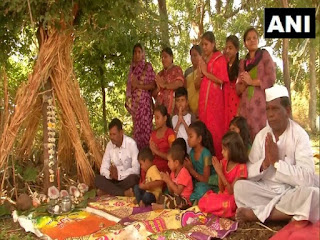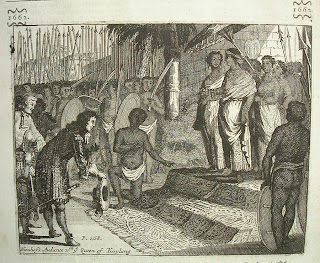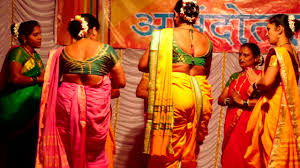Yellu Amavase- Ellu Amavasya—Thanks Giving to the nature and tiny creatures
There are beliefs, rituals, observations, and celebrations to thank “MOTHER EARTH”. As traditionally, there used to two-three crops grown by the farmers who
largely depend upon nature for yielding bountiful crops. Mother Earth –the soil, Rain-the Water, Light-The Sun, Nutrients, and the microbes-the tiny worms, insects, snakes, bullocks, wind, and nature in total. There are multiple occasions when this “Thanks Giving” is celebrated and observed. Again, it varies from region to region, season to season, and culture to culture.
One such is “Yellu Amavasya”, also known as “Ellamavasya”, which is observed on the no moon day in the Margashirsh month (November – December) in Karnataka and parts of Andhra Pradesh, Telangana States of India. “Ellu” means Sesame or Til and Amavasya is the New Moon Day or No Moon Day”. An important ceremony on the Yellu Amavasya day is the spraying of sesame and jaggery in agricultural lands. Even today the organic spray mix contains sesame, jaggery, cow dung, cow urine, neem oil, and many other natural ingredients. There is a belief that the sesame and jaggery are food for the worms in the farmland. As many insects and worms do help farmers in agricultural farms. The farming community one-casting aside the differences celebrates in great vigour.
As every season put forth its own challenges to the farming community, withstanding the cold, the farmers with their family and friends throng to their fields and offer prayers to the standing crops, particularly Jowar- a millet or the crop of the region. They spend the entire day in the fields, sharing food with each other. The Ellu Amavasya is known for its special food preparations. Special dishes of green vegetables and pulses are prepared. The special vegetarian food items are cooked of green leafy vegetables and pulses. This is first offered to the standing crops during the pooja and later shared with family and friends. The special dishes prepared on the occasion included ‘ Palak”, “ Pundi”, Menthe”, “Rajgir”, ‘Kadabu’, ‘Bajje’, ‘Bartha’, and ‘Holige’. All the agricultural laborers gather on the farmland and the food is consumed along with all family members
Special prayers are also held at rural temples for a better harvest. In cities, people have a picnic at nearby parks and have food together with their families. Yet another important ritual on the Ellamavasya is taking a bath in the sea or river is known as “Samudra Snaana”. It is said that after the great Mahabharata war, Tarpanas were given to the dead warriors on the Yellu Amavasya day.
As per the Hindu calendar, it is considered to be an auspicious occasion to have a dip in the sea. In Karnataka, this day is known as Yellu Amavasya. People flock to the nearest sea or river to take a holy dip. After bathing, the devotees offer “Tarpanas”. This practice is still in practice in the Mangalore region of Karnataka state. Darshan of Balarama at the Vadabhandeshwara Temple at Malpe in Udupi in Karnataka is considered highly meritorious.
The general belief is that those people who perform Shraddh, Tila Tarpana, bhojana to the poor, and other daana will be blessed with peace and prosperity. People also do the pooja of Pitrantaryami Srihari. Pitru devategalu and their antaryami (dead ancestors) will be blessed and pleased by their descendants on earth observing this day.
Some people also observe pujas dedicated to Lord Shani-the Saturn planet – especially those who have trouble with Shani Graha or Saturn in their horoscope.
Special prayers are also held at rural temples for a better harvest. In cities, people have a picnic at nearby parks and have food together with their families. Yet another important ritual on the Ellamavasya is taking a bath in the sea or river is known as “Samudra Snaana”. It is said that after the great Mahabharata war, Tarpanas were given to the dead warriors on the Yellu Amavasya day.
As per the Hindu calendar, it is considered to be an auspicious occasion to have a dip in the sea. In Karnataka, this day is known as Yellu Amavasya. People flock to the nearest sea or river to take a holy dip. After bathing, the devotees offer “Tarpanas”. This practice is still in practice in the Mangalore region of Karnataka state. Darshan of Balarama at the Vadabhandeshwara Temple at Malpe in Udupi in Karnataka is considered highly meritorious.
The general belief is that those people who perform Shraddh, Tila Tarpana, bhojana to the poor, and other daana will be blessed with peace and prosperity. People also do the pooja of Pitrantaryami Srihari. Pitru devategalu and their antaryami (dead ancestors) will be blessed and pleased by their descendants on earth observing this day.
Some people also observe pujas dedicated to Lord Shani-the Saturn planet – especially those who have trouble with Shani Graha or Saturn in their horoscope.
















Comments